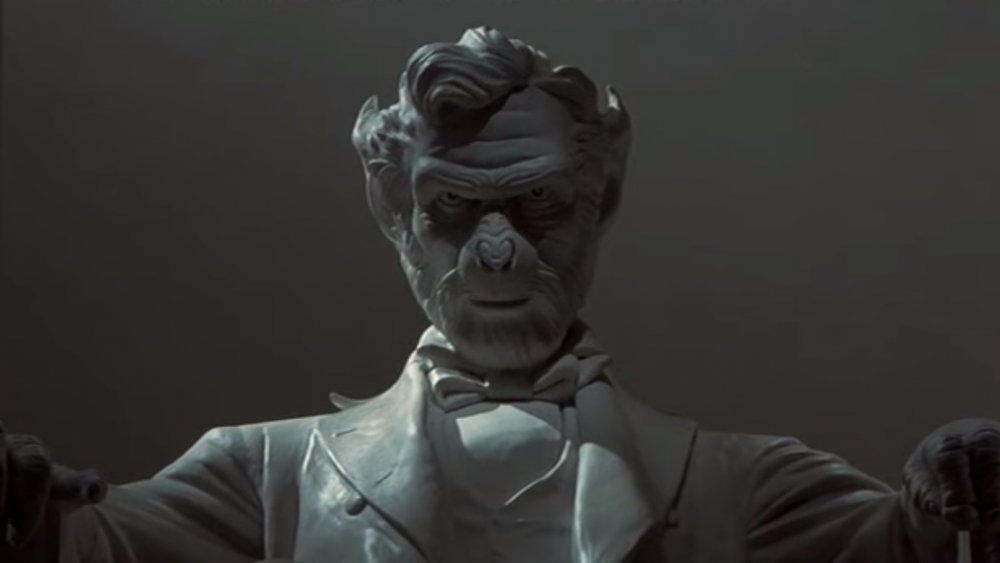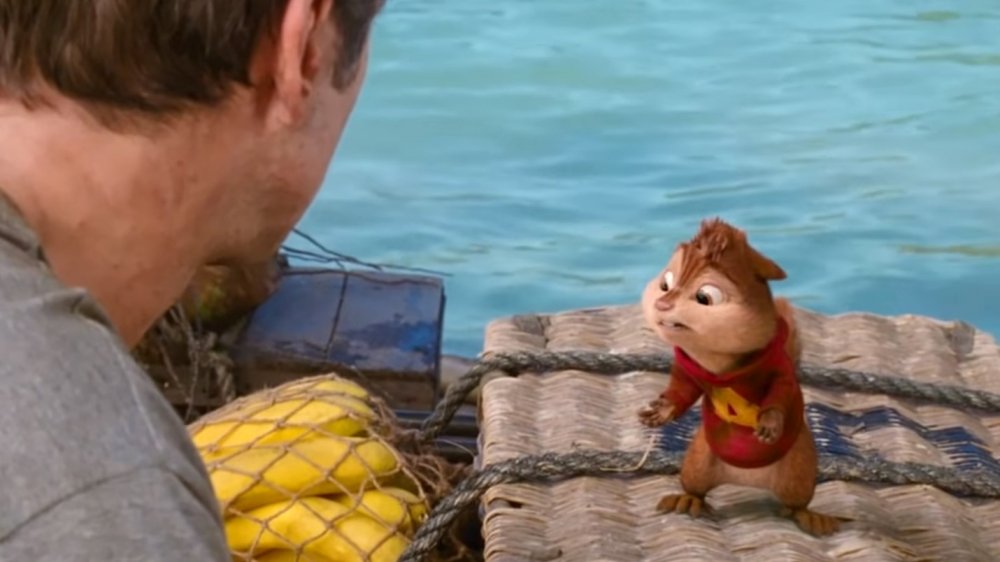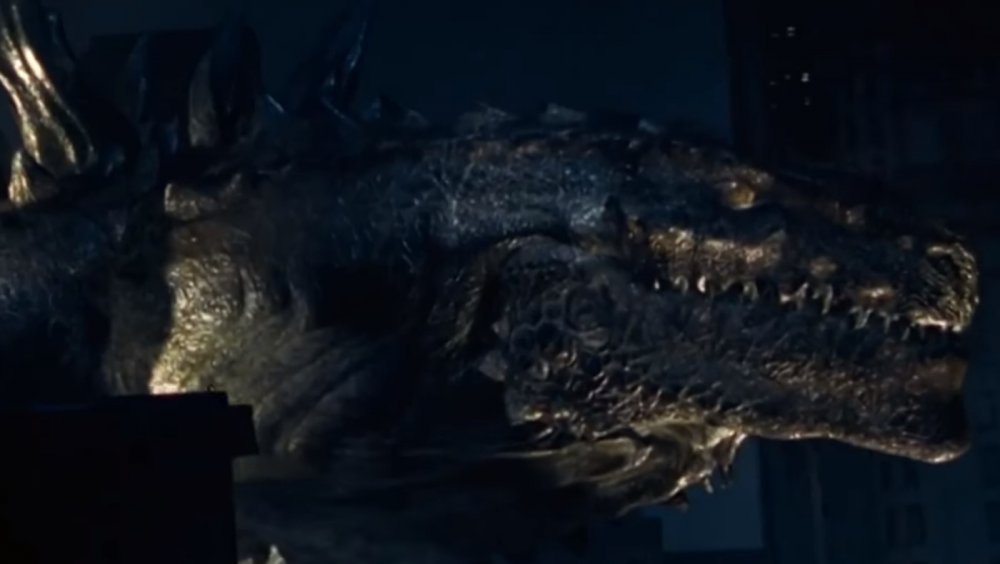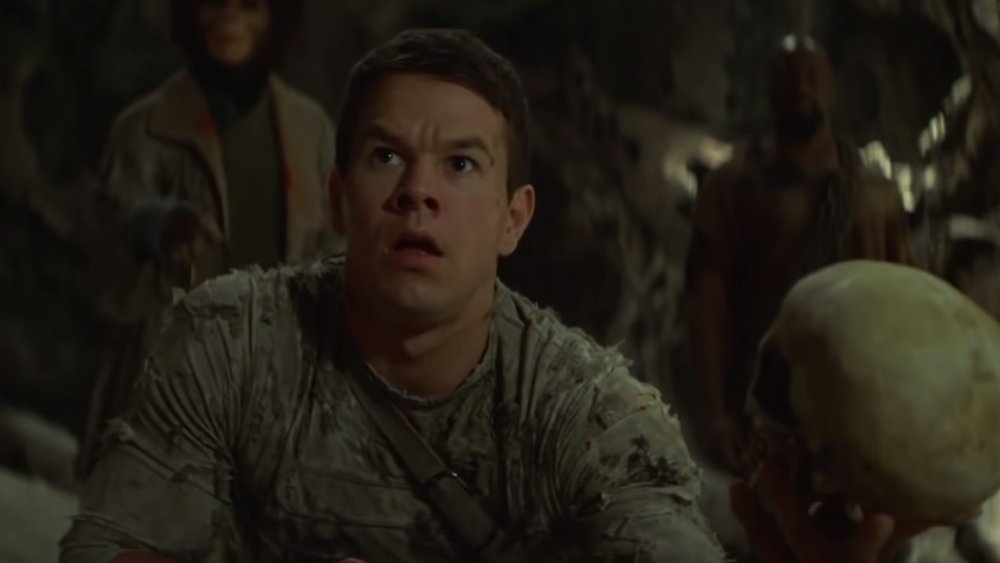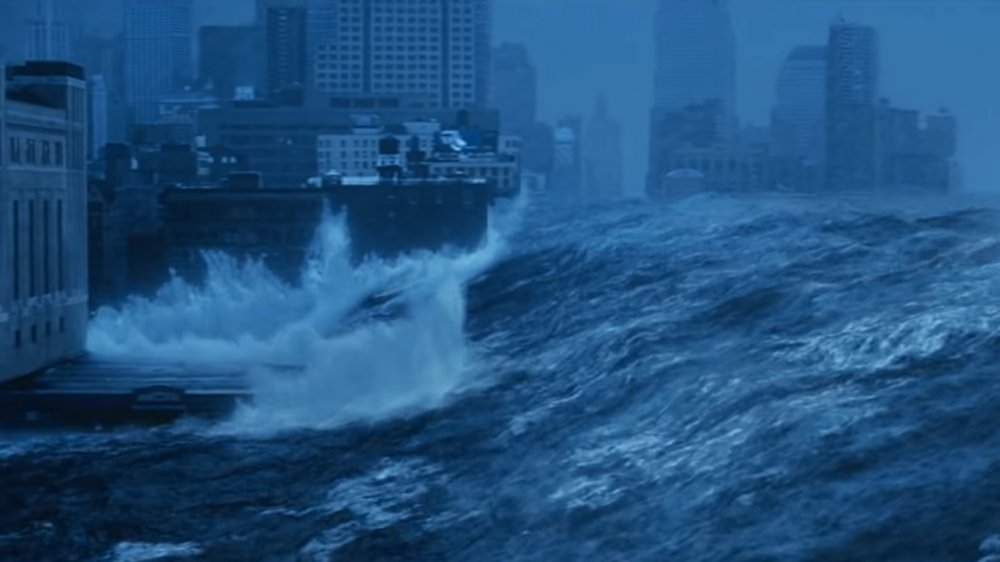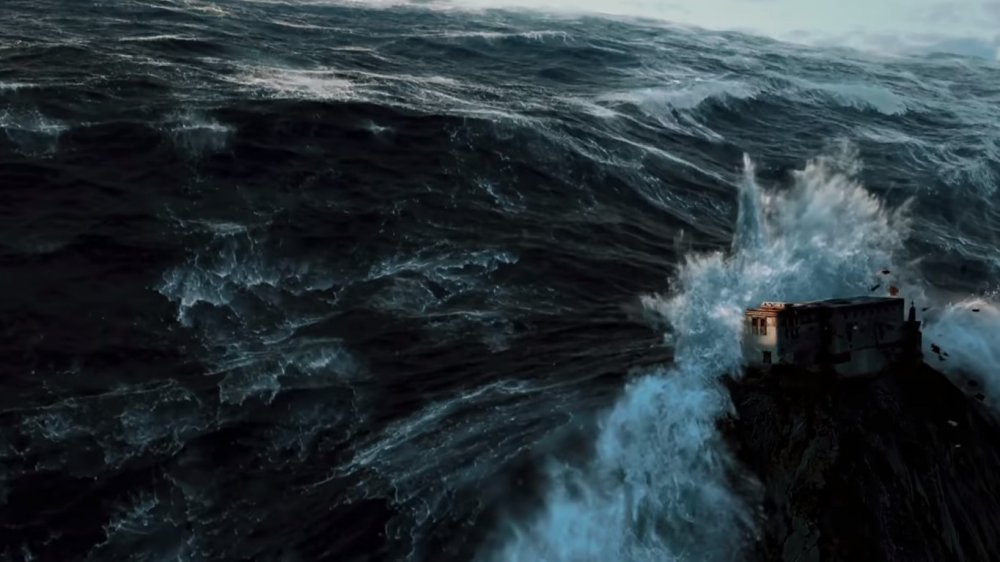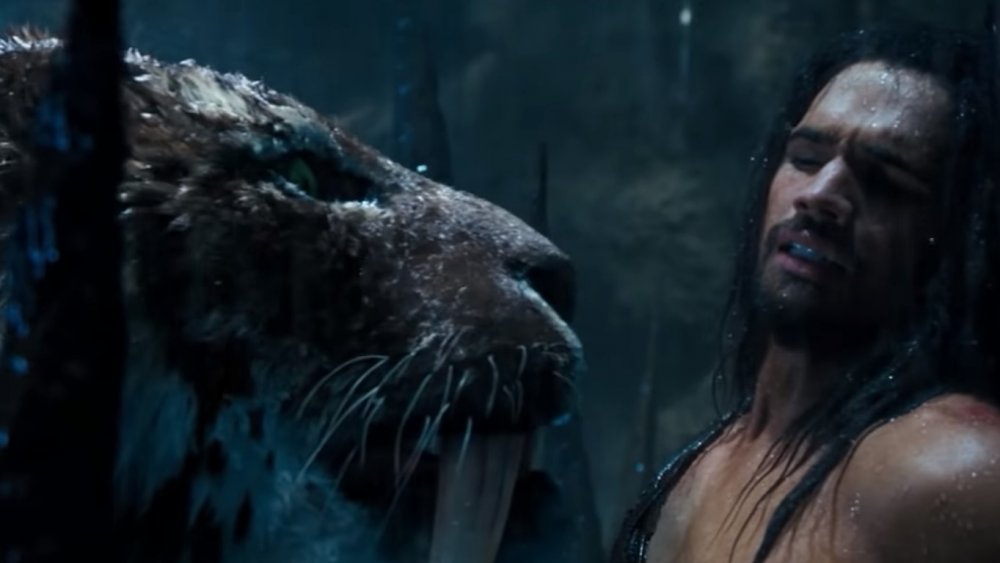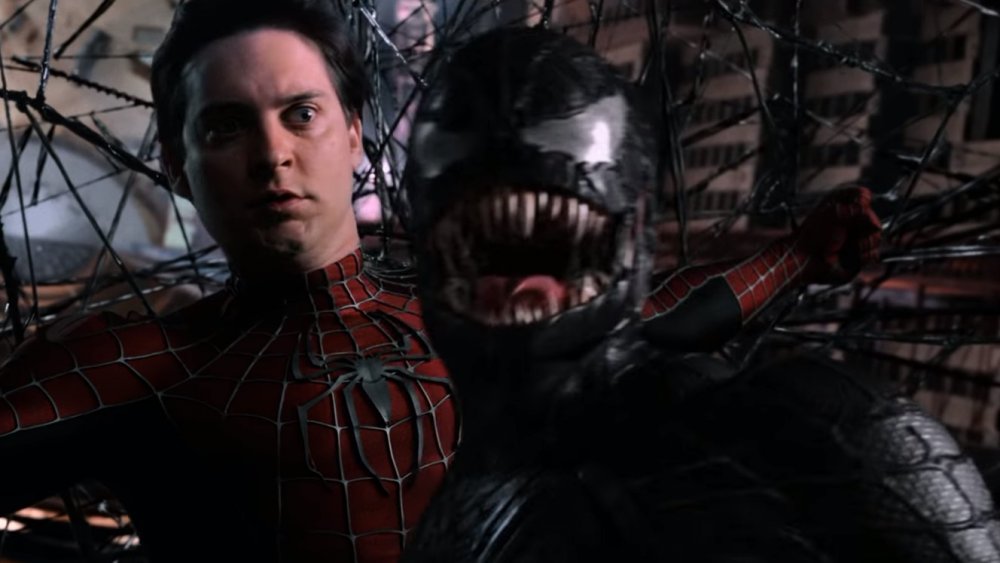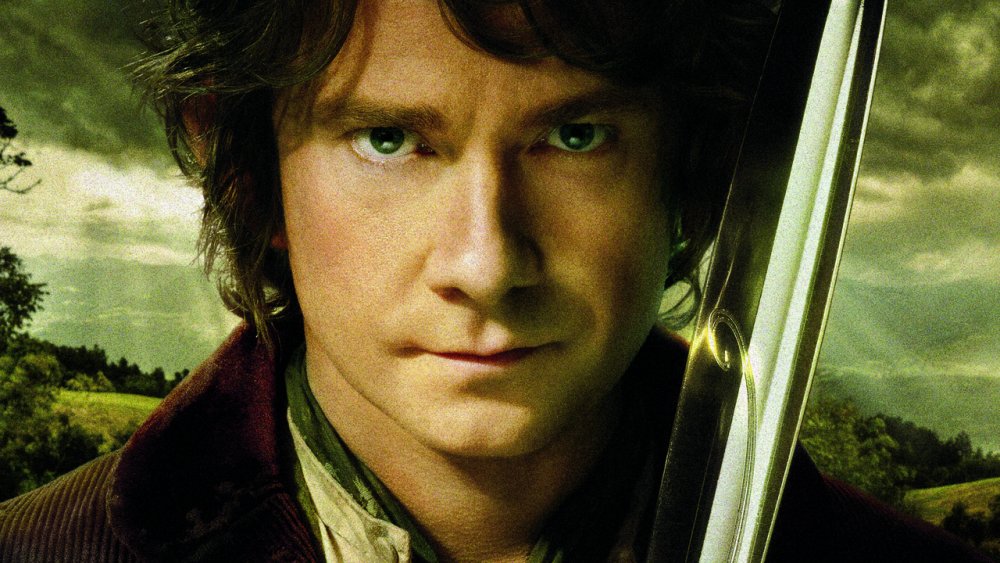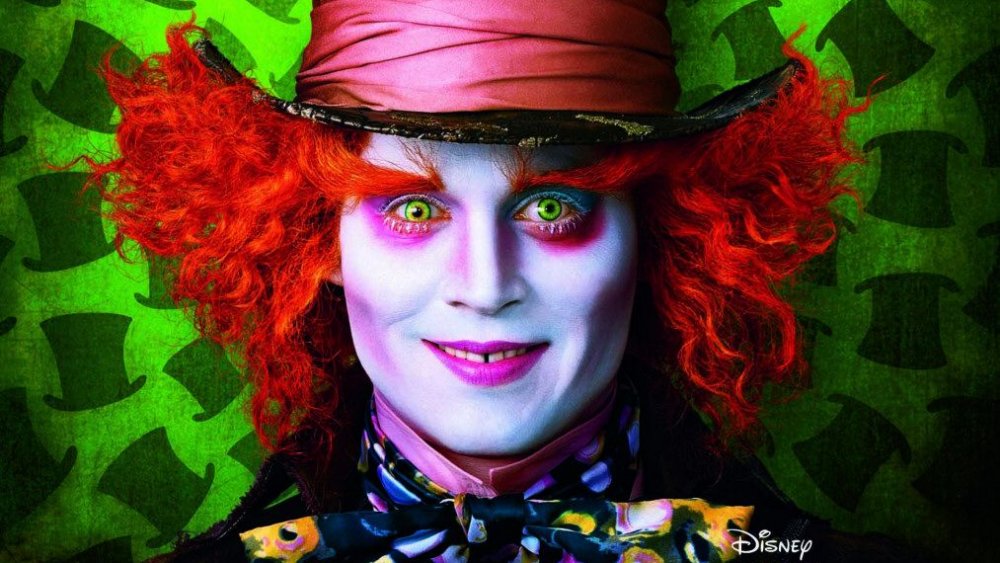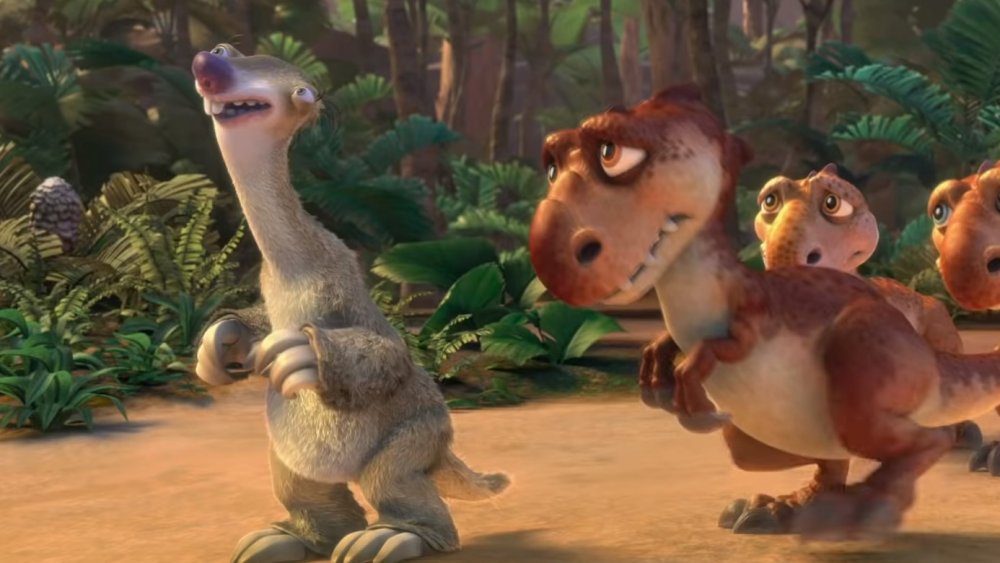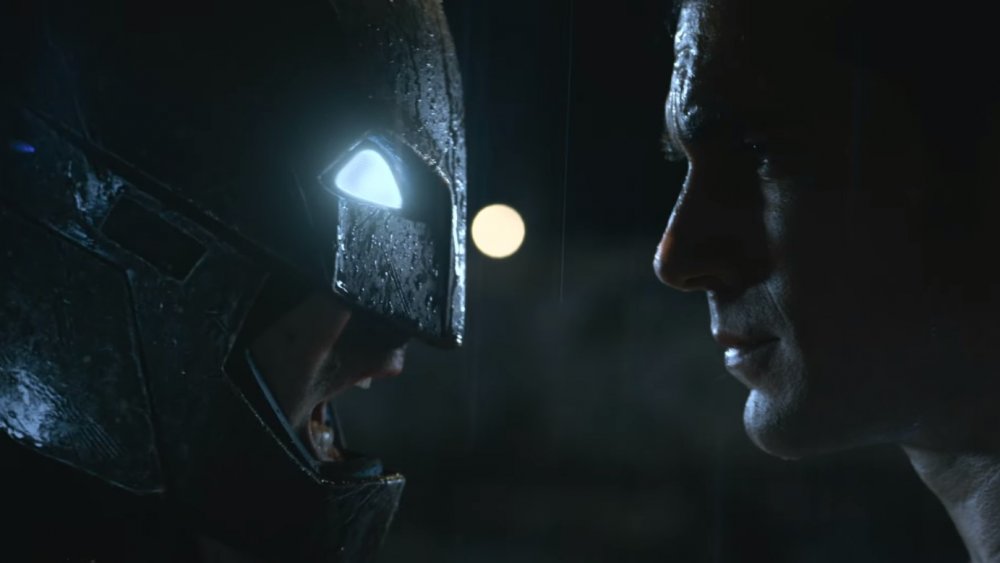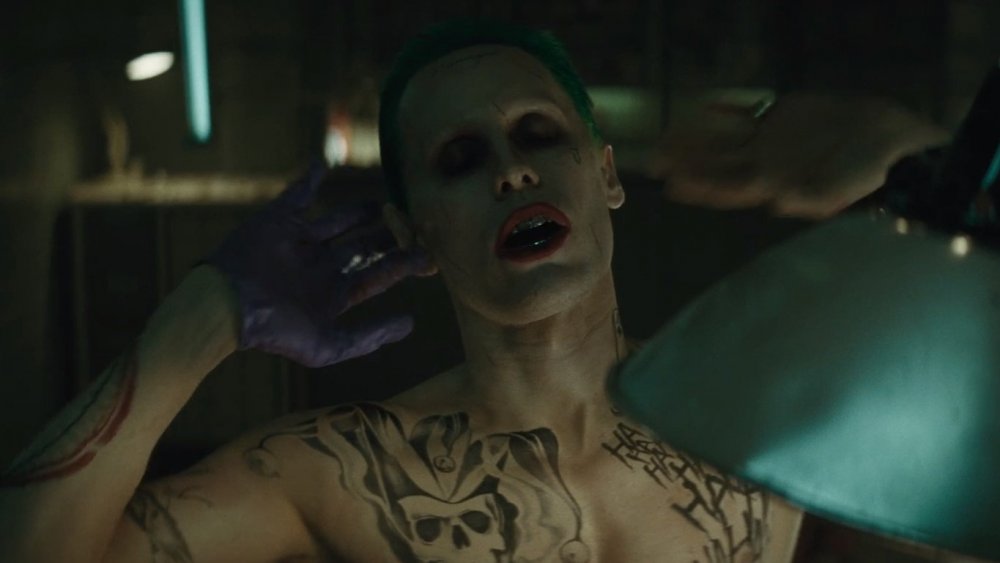Terrible Movies You Had No Idea Were Blockbuster Hits
Imagine for a moment that you were the smartest kid in your graduating class. You were well read, considerate, and widely believed to be going places. Next, imagine that through all of your classes, you had to sit next to the kid who texted eggplant emojis all day and laughed when a teacher said "egotistical" because the last three syllables were funny. Finally, imagine that after graduation, nobody responded to your job applications, while the dumb-dumb went on to make a killing overseas just by being blandly acceptable. This, in a nutshell, is probably what it felt like when Blade Runner 2049 came in fourth at the box office its second week out, behind Geostorm and Boo 2! A Madea Halloween.
Which movies will succeed and which will fail is a mystery, even to the pros. As William Goldman famously put it, "Not one person in the entire motion picture field knows for a certainty what's going to work." Sometimes the most thoughtful and badly needed cinematic commentary on the current state of affairs makes a killing, resonating with audiences the world over. Most of the time, though, people are happy shoving popcorn into our gaping mouths while a CGI creature and a bland live action audience surrogate scream at one another over the dulcet tones of whichever volume of Now That's What I Call Music we're up to.
Yes, Hollywood drops a lot of turds. Let's take a look at how much the viewing public has monetarily rewarded them for it.
Alvin and the Chipmunks 3: What A Piece Of Chip
It takes a lot of effort to be the most poorly reviewed entry in the Alvin and the Chipmunks series. Still, somebody's gotta do it, and that somebody is Alvin and the Chipmunks: Chipwrecked.
Directed by Mike Mitchell (yes, that Mike Mitchell. The one who also made Deuce Bigalow: Male Gigolo) and featuring a cast that includes Anna Faris and the kid from those Apple commercials, the globe-trotting squthreequel (okay, that needs some more workshopping) takes viewers on a whirlwind adventure when the CGI Chipmunks decide to take a vacation and go on a cruise but things go very wrong and if you care enough to want to know more details, you have an bizarre interest in the goings on of the world's favorite all-rodent singing group.
All told, Chipwrecked pulled in $342 million. Not bad, considering it only cost $80 million and David Cross' remaining mental health to make. The Mr. Show star suffered a small meltdown on Conan when asked about the film, describing a producer as "the personification of what people think about when they think negatively about Jews" and calling the shoot the "most miserable experience" of his career. Somehow, his character didn't show up for part four. Yeah there's a part four. It's called Alvin and the Chipmunks: The Road Chip and it made more money than you will ever see in your life.
God-awful Zilla
Not to be confused with 1954's Godzilla or 2014's Godzilla, 1998's Godzilla, aka "the Taco Bell one," failed to hit home with most audiences. Maybe it was because it was bad. Maybe it was for a different reason. It was probably the "bad" thing, though. Where did Roland Emmerich's adaptation of the beloved Toho kaiju franchise go wrong? Was it when he junked the creature redesign created by special effects demigod Stan Winston in favor of a bulldog/iguana hybrid? Was it when he abandoned motion capture and practical effects, confident in the fact that it was three years after Toy Story came out and pure CGI would probably carry the movie just fine? Could it have been when he outright stated that the production was washing its hands of damned near everything that fans liked about Godzilla in the first place?
No, if you ask producer Dean Devlin, the real issue was that audiences didn't get the subtleties of the film, or the team's decision to make Godzilla more animalistic than supernatural. That's your bad, film critics.
Flying in the face of overwhelmingly negative reviews, Godzilla made $379 million when it was released in theaters. Meanwhile, back in Japan, the Americanized version of the beast was so reviled, it was renamed "Zilla" and got good and thoroughly exploded by OG Godzilla in Godzilla: Final Wars, taking the Sidney Opera House with it.
Marky Mark and the Monkey Bunch
Gosh, 2001's Planet of the Apes seemed like a solid bet at the time. The inarguably oddball franchise had been handed over to acclaimed weirdo Tim Burton, chronologically equidistant at this point from the 1992 masterpiece Batman Returns and the soulless 2010 cash grab Alice in Wonderland. It could've gone either way, basically.
What it turned out to be was rough. While the makeup was on point and most of the cast was rock solid, the movie also featured a not-quite-done-cooking-yet Mark Wahlberg, an ending that didn't make a lick of sense, and frankly, just a whole lot of boring. Still, it made $362 million, just a little more than the current estimated GDP of Micronesia, so there you go.
And you know what? It's important to talk about not only how bad it actually was, but how astonishingly bad it could have been. Arnold Schwarzenegger was on board to star and Oliver Stone was slated to write and produce an Apes revival in the early 90s, which SyFy quotes him as describing thus: "It has the discovery of cryogenically frozen Vedic Apes who hold the secret numeric codes to the Bible that foretold the end of civilizations (...) My concept is that there's a code inscribed in the Bible that predicts all historical events." In short, count your blessings, and stay away from cocaine.
Worst Tom Waits adaptation ever
You may remember Roland Emmerich from two entries back when he directed 1998's Godzilla, a film described by astute viewers as "definitively bad." Luckily, this little engine that could got another crack at the glitz and glamour of Hollywood with the 2004 think piece The Day After Tomorrow, a movie that bravely said, "You know what'll make people take climate change seriously? Turning it into a science fiction disaster movie where none of its real world effects are portrayed accurately." It was sort of like how Star Trek IV drummed up sympathy by saving the whales, only not fun.
The Day After Tomorrow was based on the book The Coming Global Superstorm by Art Bell and Whitley Strieber of the paranormal and conspiracy theory-themed radio program Coast to Coast AM, and yes, it was heavy-handed. But your hands would be heavy too if they were carrying over half a billion dollars. That makes it the most successful adaptation of a radio host's book ever produced, probably. The most important lesson it taught us: all of the cutting-edge CGI in the world can't make Dennis Quaid fun to watch.
The Year After 2011
Roland Emmerich is back, not content with the massive piled of money Godzilla and The Day After Tomorrow made. As fate would have it, he was granted another turn at bat with 2012. So, you know. Here we go again. 2012 told the story of a series of plucky humans trying to outlast the apocalypse foretold by the Mayans, who somehow had a blind spot the size and shape of their own civilization's unceremonious decline but kept a solid bead on the end of days. Now mostly remembered as a reminder John Cusack hit his sell by date right after America's Sweethearts, at the time it felt more like an Oliver Stone-esque catastrophizing of people's actual concerns about the end of days.
It's been a busy decade, so you'll be forgiven if you don't remember how freaked out some members of the public got about the 2012 end of the world predictions. It was brought up by talk show hosts, televangelists, and New Age religious leaders, nearly all of whom must have been around for Y2K and known better. So when the ad campaign for 2012 was played as a straight-faced warning of humanity's coming doom, it allegedly led to young people contemplating suicide to avoid the event and a lecture from NASA on responsibility.
All told, 2012 raked in $788 million worldwide, making it the fifth highest grossing film of the year, with Avatar taking most of the other four spots.
The Year Before 9,999 B.C.
You may remember Roland Emmerich from ... look, the guy tends to have one speed, and in 2008, he released 10,000 BC, one of the blessedly few movies about cavemen without Ringo Starr.
Written, directed, and produced by Emmerich, 10,000 BC was all about a surprisingly well waxed early human hunting prehistoric CGI animals in a region of the world we'll call The Uncanny Valley. When his lady friend, another exceptionally well plucked cave type named Evolet, is captured by bad guys, he's forced to do action things. There's a prophecy involved. It's something you can really relate to if you, too, are a messianic prehistoric Homo sapiens that found a package of Gillette razors.
The movie cost just a kiss over $100 million to make and wound up making nearly three times that amount back after DVD sales were factored in. And here's the extra bonkers part of the story: it spawned the name "Evolet," which started popping up as a baby moniker that same year. That means that somewhere out there, there's a tween living blissfully unaware that she's named after a scantily clad cavewoman from a movie that Richard Roeper once listed as being only slightly worse that The Love Guru.
And then they never made another superhero movie again
Hey, remember back before Marvel managed to reconstitute itself into an unstoppable, all-encompassing gelatin of crowd pleasing properties? Remember how, for a while, there were movies that took place in a universe where there was only one superhero? How, within that story, a single guy dressed in a skintight onesie shot sticky goo at people and everyone in New York was like, "It's cool with us, go Jets!" Things were simpler back then. Tobey Maguire was still in movies, for one thing.
And they were huge. The Spider-Man movies were a cultural phenomenon that, arguably more than any other picture since Superman, validated superhero flicks as a viable money printing machine. With Spider-Man 3 being the most blandly reviewed entry in the series as well as the one that slaughtered the franchise, you might think that it was a commercial failure.
Nope. Spider-Man 3 pulled an $890 million worldwide haul on a $258 million budget. Sony was reportedly stoked on the idea of three more movies, but Sam Raimi pulled out of the series for creative reasons (he hated it) and the plans were scrapped. And then nobody ever made another Spider-Man movie again.
Too good by halfling
This one's a head scratcher. After the first Hobbit movie came out, do you remember any of your friends walking out of the theater saying, "I can't wait for the next one?" Can you remember anyone saying that? Even Peter Jackson wasn't excited about these movies. They were long and ill advised and the bad guys looked like scary Shrek characters. The studio decided that they could milk J.R.R. Tolkien's 300-page kids' book for the same amount of material as his trilogy of exhaustively-detailed novels. Only one out of three of the prequel films was rated "Fresh" by critics on Rotten Tomatoes, while the Lord of the Rings movies sat on a throne made of 90 percent+ approval ratings, smugly eating their second breakfasts.
There's so much that was underwhelming about the Hobbit movies, with their creepy de-aged Orlando Bloom and his nuclear blue eyes. But you know what? Money talks, and the things made damned near $3 billion. That's Avengers money. Congratulations, filmgoers. Through your tsunami of ticket purchases, you've outvoted the concept of movies being fun.
Johnny Depp's unknowing retirement party in Wonderland
There's an argument to be made that Tim Burton's Alice in Wonderland could've been a great movie if he'd made it 10 years earlier. Burton fatigue wouldn't have set in yet. The push to up a movie's box office take by shoehorning in 3D effects wouldn't even be a bubble yet, let alone one on its way to popping. Studios wouldn't have had that Harry Potter light in their eyes, pushing them to turn every recognizable property into a potential tween-centric fantasy franchise.
Sadly, what we got was a real drag of a movie, which took a purposely nonsensical universe and tried to apply big budget, Narnia-adjacent logic to it. Critical reception was tepid. Burton, once maybe the closest thing to a post-70s blockbuster auteur, brought all the artistic vision of a Duluth shopping mall Spencer's Gifts manager decorating the front window display. Johnny Depp, his returns well on their way to diminishing, wore a silly wig and a big hat. Audiences suddenly realized that this was his only trick, and the world was a less innocent place for it.
But then Earth, as one, seemed to shout, "Well, that popcorn's not going to eat itself," and Alice in Wonderland made over a billion dollars. Then it spawned an even harder to watch sequel, which, while not the mattress stuffed with money that Disney was probably hoping for, still pulled in nearly $300 million.
Somehow not the last Ice Age
It's difficult to get a handle on why people love animals so much. You'd think that it might be because we want something alive that doesn't talk a lot, but that theory flies right out the window when you realize that we'll spend inordinate amounts of money on movies about critters that won't shut up. They're not generally life changing. Not a lot of people saw Garfield 2 and walked away feeling anything but irritated. If Sartre was right and hell is other people, then the darkest pit of purgatory is animals with people voices.
So it speaks to the human race's deep sense of self-loathing when you look up how much money the Ice Age franchise made. Here's a thought experiment: if you had to put a dollar amount on how much the world wanted to listen to Ray Romano's dulcet tones coming out of a hairy elephant, what would that figure look like? It's more than that. It's obscene. The franchise has raked in $3.2 billion across five films, with the third movie, Dawn of the Dinosaurs, pulling in the lion's share at $886 million in 2009, the year when, legally, nobody was allowed to go see anything except Avatar.
Now ask yourself, and be honest: did we really love Scrat that much?
Martha
A movie about an angry furry getting into a fistfight with an alien with laser eyes seemed like a solid bet. Maybe Warner Bros.' biggest mistake was making it a tentpole blockbuster instead of a Jared Hess indie comedy. Hindsight is 20/20.
It would be nearly impossible to find a unique series of words to describe Batman v Superman which, in the infinitely shuffled deck of the internet's lexicon, hasn't already been dealt. Critical response was abysmal. Comic book fans were distraught. In a Wall Street Journal piece, the movie was described as "a clash of cultural icons. It's about the politics of military intervention and terrorism. It's inspired by W.H. Auden and Umberto Eco." In reality, two computer generated cape guys punched each other until they found out their moms had the same name.
The bittersweet result was a movie that made $873 million worldwide and was reported to have the fourth biggest opening weekend ever at the time of its release. However, it also failed to hit that ever so tasty billion dollar mark, and was considered a box office disappointment. Thematically, it was weak sauce enough that even other DC productions made fun of it.
It seemed like a suicide mission
Maybe it seems rude to call Suicide Squad terrible. Some people probably really liked Suicide Squad. Some people probably liked scraping their knees on the pavement when they were kids. People are weird.
At just under $750 million in ticket sales, David Ayer's opus might seem like relatively small potatoes compared to most widely released superhero pictures. But one of the more incredible aspects of the movie's release was that it raked in that kind of money without ever being officially released in China, a country that Hollywood has widely regarded as their personal ATM. Forbes pointed out a Chinese release would've likely meant a box office take that would've dwarfed Deadpool and Guardians of the Galaxy. Still, three quarters of a billion is nothing to sneeze at.
Speaking of sneezes, the film's villain looked like radioactive snot. Hopes are high that the James Gunn-helmed totally-not-a-reboot reboot won't hurt audience's eyes so much. It's scheduled to come out in August of 2021.
